
Exploring Yoga’s Power Through Practical Philosophy
Yoga is the practical school of Indian philosophy. However, this statement comes with a caveat, because in the Indic way of looking at things, we don’t have schools of philosophy – philosophy being a Greek concept – we have darśana-s– perspectives, ways of looking at reality.
Yoga is a way of looking, exploring and inquiring. It is a worldview, a cosmovision. A thoroughly practical one. Yoga has survived for millennia because it works. The teachings of yoga all came from the close observation of nature. Yoga works with the reality of nature and the human condition.
Like many other creatures, we are endowed with consciousness, but as humans we also have conscience. Our challenge and opportunity is to rehabilitate our connection to it so we may live as the expression of our deepest intelligence unimpeded by our limiting conditionings and realise our true self. Yet limiting conditionings are part of the game. Yoga recognises that as humans we are part of Nature: that which is born, which will die and in between those two great changes will be subject to constant change.
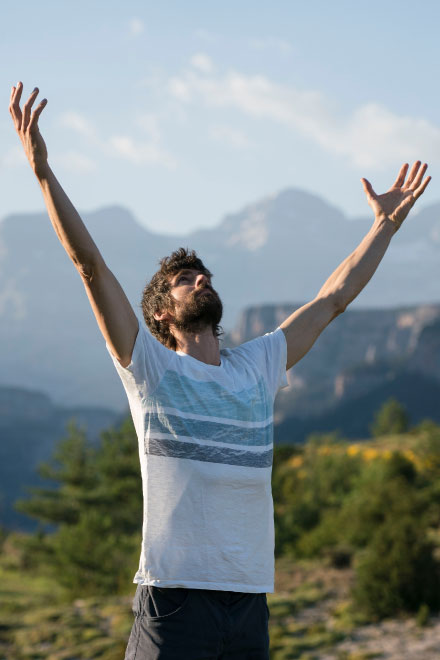
Transcending Limitations,
Embracing Growth
Yoga does not sugarcoat reality. We are subject to partiality, but that does not mean we are powerless to do anything about it.
The Yogic Perspective is an Empowering One
The yogic perspective is an empowering one. As Kṛṣṇa emphasises in the Bhagavad Gītā, each one of us is responsible for our actions and experience. We are each the sovereign of our own psychic realm.
As the classic texts of the yoga tradition remind us, yoga begins, again and again, when we own that we do not know, when we acknowledge that we do not have it all figured out, that we are not established in yoga, that we do not know ourselves as well as we might, and that we can something about it!
When a person becomes more established in yoga, more connected to the part of ourselves that never dies, our false allegiances and insecurities dissolve and we can walk here on this Earth amidst the whirling tumult and commotion of life from a steadier seat of self-possession, in which we are less fazed by the comings and goings, and in which we can maintain internal freedom regardless of the changing externals.
Yoga offers us and invites us to work with a time tested set of principles to help us foster greater steadiness, equipoise and equivision so we can stay balanced and maintain access to the deep resources of our millennia evolved intelligence and conscience through the inevitable ups, downs, triumphs and travails of life.
Yoga does not ask us to believe anything, rather it invites us on a path of valiant exploration to deepen our own self-trust and confidence.
Yoga does not offer us ‘the answer’, but rather a robust frame for ongoing questioning that can bring us deeper into recognition of our true selves and reality.
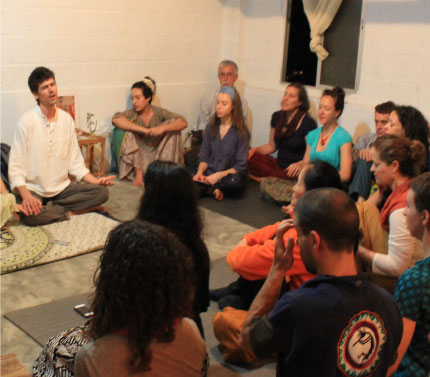
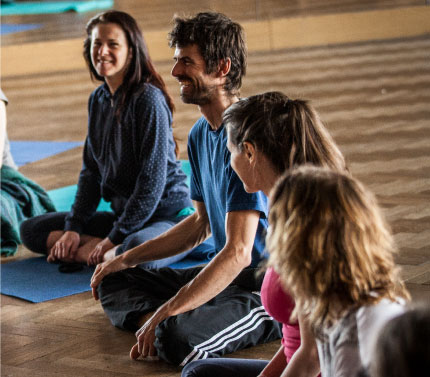
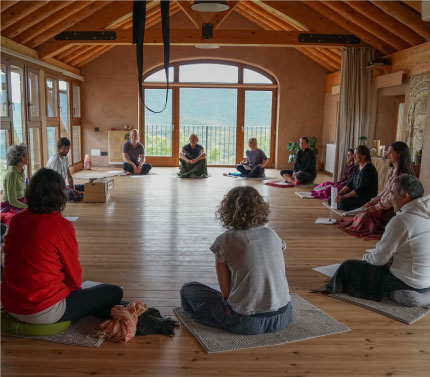
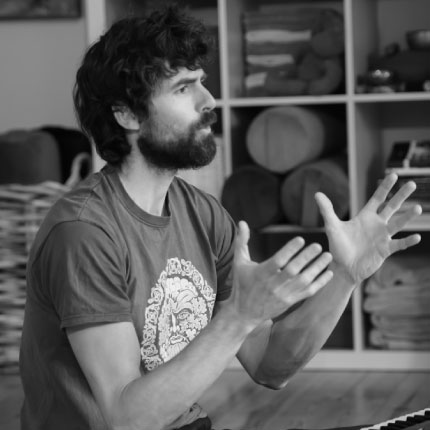
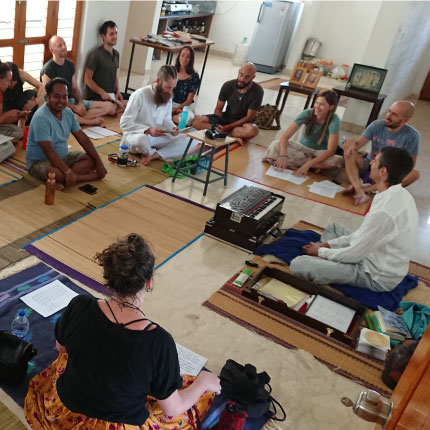
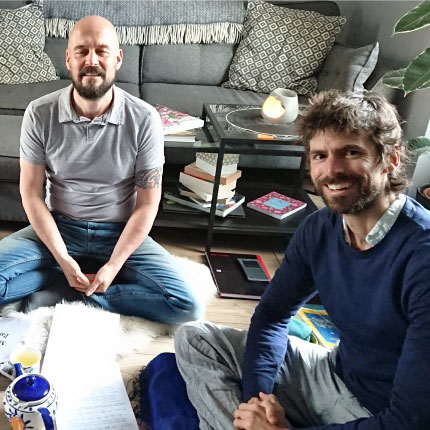
A Few Key Ideas From the Yogic Perspective
As a human being, you are blessed, you are privileged. This opportunity of a human birth is an amazing opportunity to experience, learn and grow, to be part of consciousness revealing and recognising its infinite creative potential.
- You are the sovereign of your actions and your experience.
- You are responsible for your life.
- You have jurisdiction over how you act and respond.
- So own it, (re)claim your authority, take care of how you speak, take note of how your actions affect you and everything around you.
- Work with the broad array of your intelligent gifts.
You have to cultivate self-trust and self-confidence. Nothing can be achieved without faith. This is not about blind faith or believing what anyone else tells you, but building self-trust with diligence and discerning commitment, harnessing the insights of honest, thorough inquiry and exploration.
This yoga is the work of heroes/heroines in the sense of those who are willing to go beyond the known, into the dark shadowlands of our psychic fields and fathom our depths, acknowledging and integrating our whole selves. Yoga is a path of self-discovery. It aims at self-realisation. One of its cornerstones is dharma.
Dharma is a Sanskṛt word that defies translation. It comes from a verbal root which means to support or sustain. As a noun it also denotes the true, essential quality of a thing. It refers to nature, to law, to duty, to right action. Dharma is the action that at once supports the wellbeing of the whole and allows the individual nature to blossom forth in its fullness and unique beauty. Yoga is always about reconciliation. Its integrating, harmonising principles work with the seeming pairs of opposites to draw forth their complementary potential.
According to the yogic vision, we are here for consciousness to recognise itself, to realise its infinite creative potential. When we fathom the depths of ourselves and do the work to integrate the unique manifestation of consciousness and intelligence that is us, we bring ourselves into rhythm with the cosmos and play our part in the evolutionary journey of life and manifest existence as a part of that greater totality.
Yoga is concerned with how we experience life. It gives a robust, practical, time-proven structure and set of antifragile, dynamically adaptable principles to help us navigate the challenges and opportunities of life while moving skilfully and steadily towards its aims:
- dharma – the way that supports the wellbeing of the whole and brings proper, authentic expression to consciousness’ creative capacities;
- artha – material wellbeing, leaving the ecos better than we found it to pass on the gifts of our ancestors and facilitate the ongoing progress of our descendants;
- kāma – pleasure, beauty, learning, artistry, savouring judiciously the richness of the gifts of incarnation, and ultimately:
- mokṣa – freedom and liberation from all conditionings and all desires.
That may sound like something rather far off, or lofty. But as with all yoga principles, they work gross to subtle and meet us where we are. While the idea of becoming totally free and having no more desires may sound outlandish or even undesirable, how about being freer from compulsion? Being freer to heed the directives of our conscience, being freer from crippling doubt and fear, freer from the polluted miasmas of propaganda and fear-mongering?
The journey to deepening freedom starts right here and now and allows us to live more skilfully, healthily and spaciously. Yoga principles help us do this, steadily and reliably building robustness. refining discernment and self-awareness.
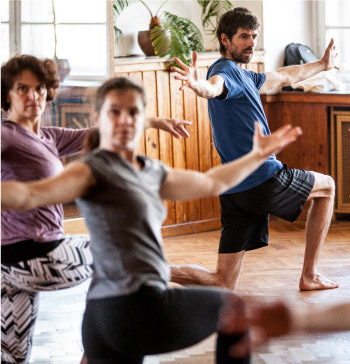
Programs
SIGN UP >
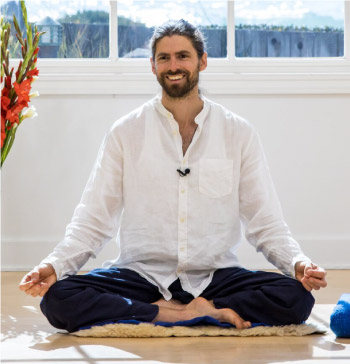
Work With James
LEARN MORE >
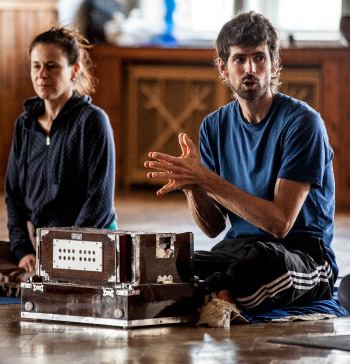
Store
COMING SOON
Whole Life Yoga Newsletter
The place to find out first about all James’ programs and offerings, receive articles, recommendations, and access special rates for programs.
